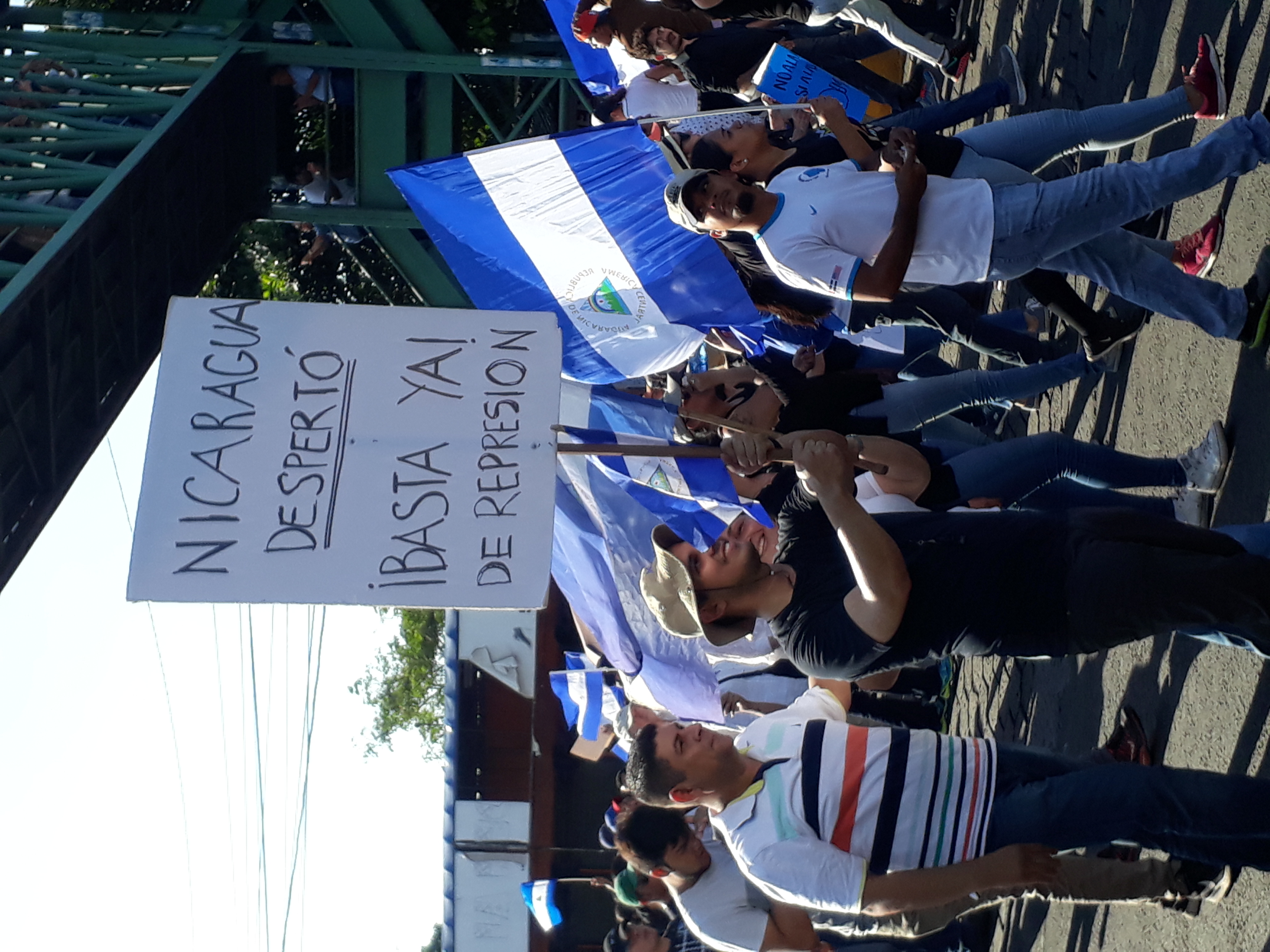Contribution to the Fourth Cycle of the Universal Periodic Review on Nicaragua
Nicaragua
This report, presented by Artists at Risk Connection (ARC) and a coalition of international Organizations, aims to bring to light the ongoing violations of freedom of expression in Nicaragua before the United Nations Human Rights Council as part of the 2024 Universal Periodic Review (UPR). Since 2018, following the onset of protests against the government of Daniel Ortega, there has been an escalation in repression targeting journalists, activists, artists, and other critics, resulting in censorship, arbitrary detentions, forced exile, and other severe human rights violations. During the third cycle of the UPR, Nicaragua accepted only 14 out of 48 recommendations related to freedom of expression, and the situation has since significantly deteriorated. The persecution of dissenting voices has been relentless, including the closure of media outlets, confiscation of property, and the enactment of laws that curtail civic space and press freedom. This report seeks to present these issues to the international community, with the aim of encouraging specific recommendations to improve the state of freedom of expression in Nicaragua, where there are currently almost no guarantees for the exercise of this fundamental right.
Recommendations for Addressing the Deteriorating Climate for Freedom Of Expression In Nicaragua
Between 2019 and 2024, the State of Nicaragua and its officials have intensified and increased targeted aggressions against journalists, activists, artists, media, students, clergy, political opponents, etc. Acts such as arbitrary detentions, forced exile, withdrawal of citizenship, and stripping of property and basic rights are becoming commonplace. Since the last UPR cycle, legislation[1] implemented in Nicaragua has led to a restriction of civic space and freedom of expression in the country. The State has refused to live up to prior commitments made in the UPR process and is failing to protect and guarantee these essential rights.
1. Persecution and Criminalization of Journalists and Artists
During the period of this UPR cycle, freedom of expression and artistic freedom has come under attack with major civil society organizations, journalists and artists promoting dialogue, human rights and cultural rights being targeted. Media freedom has been undermined through restrictions on news coverage related to the Covid-19 pandemic, limitations on public information, and threats to the work of journalists. There has also been a dramatic increase in persecution, attacks, and censorship against journalists, including acts of defamation; restrictions on access to information and the internet; civil and criminal proceedings; denial of access to public services, including health care; arbitrary detention; torture; abuse of state power; kidnapping; gender based attacks; and murder.
Specific Recommendations
• Cease judicial, police, and institutional harassment against those exercising their rights to free expression and peaceful demonstration, including those who are critical of government policy.
• Stop the arbitrary use of administrative, legislative, judicial, financial, and law enforcement mechanisms that prevent the exercise of freedom of expression and other fundamental rights in the country.
• Repeal the restrictive laws described in this report that operate contrary to international legal standards concerning freedom of expression, artistic freedom, and freedom of assembly.
• Take immediate steps to release all arbitrarily detained opponents and critics, including journalists, activists, artists, and other political prisoners imprisoned for exercising their right to free expression, artistic expression, and peaceful demonstration.
2. Forced Exile and Dispossession of Nationality
Among the repressive mechanisms implemented by the Nicaraguan State in the period documented for this report, the stripping of citizenship and the forced exile of people critical of the authorities are particularly noteworthy. Due to the socio-political crisis that the country has experienced since April 2018, and the withdrawal of citizenship from at least 317 people, Nicaragua reached a record number of at least 440,260 displaced people – 6.5% of its population. Ninety of those stripped of their nationality in 2023 were journalists, diplomats, media directors, opposition members, writers, and civil society individuals, including human rights defenders and activists. These violations have perpetuated further human rights violations, including violations of the rights to recognition as a person before the law, to participate in public affairs, to work, to social security, and other economic and social rights, the impacts of which are impossible to quantify.
Specific Recommendations
3. Closure and Confiscation of Media, Civil Society Organizations and NGOs
Between 2018 and 2023, 49 media outlets have been shut down. Five of them were raided with their offices subsequently shuttered and properties confiscated. Journalists have been victims of attacks, such as the theft of production and transmission equipment, police harassment and siege, withholding of supplies, economic embargoes, raids, and arbitrary closure of their licenses. Radio stations have been banned from covering news and have reported constant interference on their frequencies by pro-government stations. Similarly, their broadcasting licenses have been canceled by the Nicaraguan Institute of Telecommunications and Postal Services (TELCOR) on the basis of false allegations that they were operating irregularly. Additionally, more than 3,500 NGOs legal registration have been canceled since 2018, according to different human rights organizations and media outlets. The annihilation of organizations, especially those working for fundamental freedoms, affects democracy, reduces civic space, and facilitates the silencing of critical and dissident voices.
Specific Recommendations
• Guarantee freedom of the media by allowing journalists, media workers, and other communication professionals to carry out the full extent of their informative work, ensuring the security of their assets and investments, and guaranteeing an enabling environment where they can work without fear of reprisals.
• Return the equipment and infrastructure confiscated from media outlets, journalists, and other opposition members, as a sign of commitment to fundamental freedoms and democracy in the country.
• End the campaign of religious persecution, especially against the media of the Catholic Church, and guarantee that they can operate with equal opportunities as those of other religious groups.
• Immediately restore the legal status of civil society organizations that have been closed and allow them to carry out their work without fear of reprisals.






